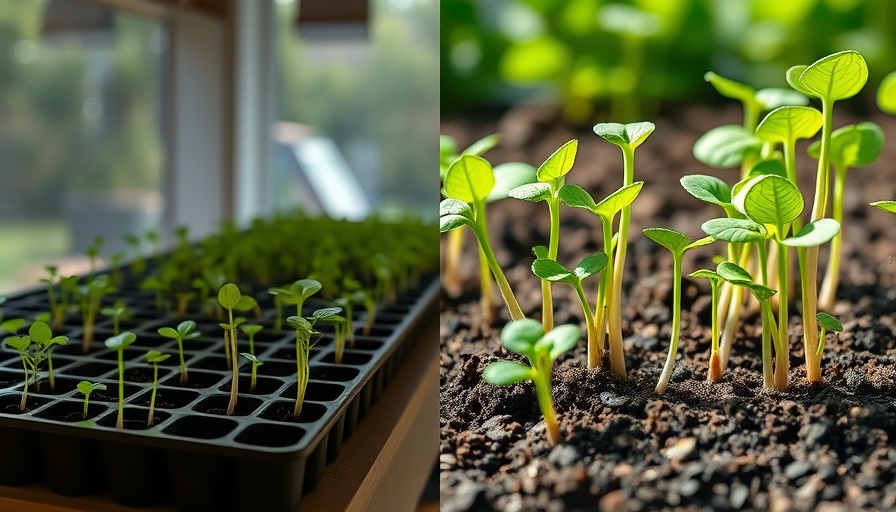
Why Some Seeds Should Be Started Outdoors
Gardening is a delightful journey that connects us with nature and allows us to cultivate our own food and beauty. However, it's essential to understand that not all seeds thrive when started indoors. In gardening circles, the debate about when to begin sowing seeds—indoors or outdoors—can be as passionate as it is informative. Some seeds, as a general rule, do much better when they are sown directly into the garden soil, and here’s why.
The Fragility of Roots
Many gardeners view delicate seedlings as the foundation of their garden’s success. However, there are certain plants whose roots are so fragile that the stress of transplanting is nearly catastrophic. Root crops such as carrots, radishes, and potatoes are prime examples of plants that should only be sown directly in the ground. Transplanting often leads to root disturbance that may inhibit growth, resulting in a lesser bounty than anticipated.
Timing vs. Temperature: The Great Outdoors
For those eager to dive into their gardening in early spring, timing is crucial. Fast-growing plants like beans, cucumbers, and lettuces mature rapidly—many within 45 to 50 days—making it worthwhile to consume precious outdoor time by directly sowing them in the soil. Not only does this save the effort and hassle involved in indoor seed starting, it also allows the seedlings to acclimate smoothly to their environment without shock from transplanting.
Direct Sow for Success
According to experts, anything that produces quickly can be well-suited for direct sowing. These plants include arugula, spinach, and various types of squashes. They require little care and can establish themselves rapidly, making them perfect candidates for a simple backyard garden. While starting these plants indoors may offer a head start, it's often unnecessary if your growing season is ample.
Top Plants to Avoid Starting Indoors
Based on findings from recent articles and gardening discussions, there are several key plants that should never be started indoors:
- Root Crops: As discussed, delicate roots don’t fare well when disturbed.
- Cucumbers: These robust plants grow quickly and require direct soil contact.
- Beans: They grow rapidly and transplanting poses a risk to their fragile roots.
- Squash Varieties: These plants can be unwieldy indoors and are best suited for outdoor sowing.
- Peas: Similar to beans, they thrive when sown directly into the garden.
Embracing the Gardening Journey
Gardening is not just about the harvest; it’s a wonderful experience blessed with moments of joy and connection. Starting seeds outdoors allows gardeners to harness the power of nature, promoting a more enriching growing experience. For beginners, recognizing the intrinsic needs of plants can transform your garden into a lush oasis.
Final Thoughts on Garden Planning
Understanding which seeds to start indoors versus outdoors is a gratifying skill that will serve you well in your gardening endeavors. Armed with knowledge, you can step into the world of gardening with confidence and excitement! Whether you're drawn to the vibrant colors of a flower garden or the satisfaction of growing your own vegetables, the journey begins with a single seed—sown in the right location.
Remember, your next gardening adventure awaits! Embrace the opportunity to get your hands dirty, tap into the benefits of outdoor sowing, and watch your garden flourish in the sunshine. Happy planting!
 Add Row
Add Row  Add
Add 




Write A Comment